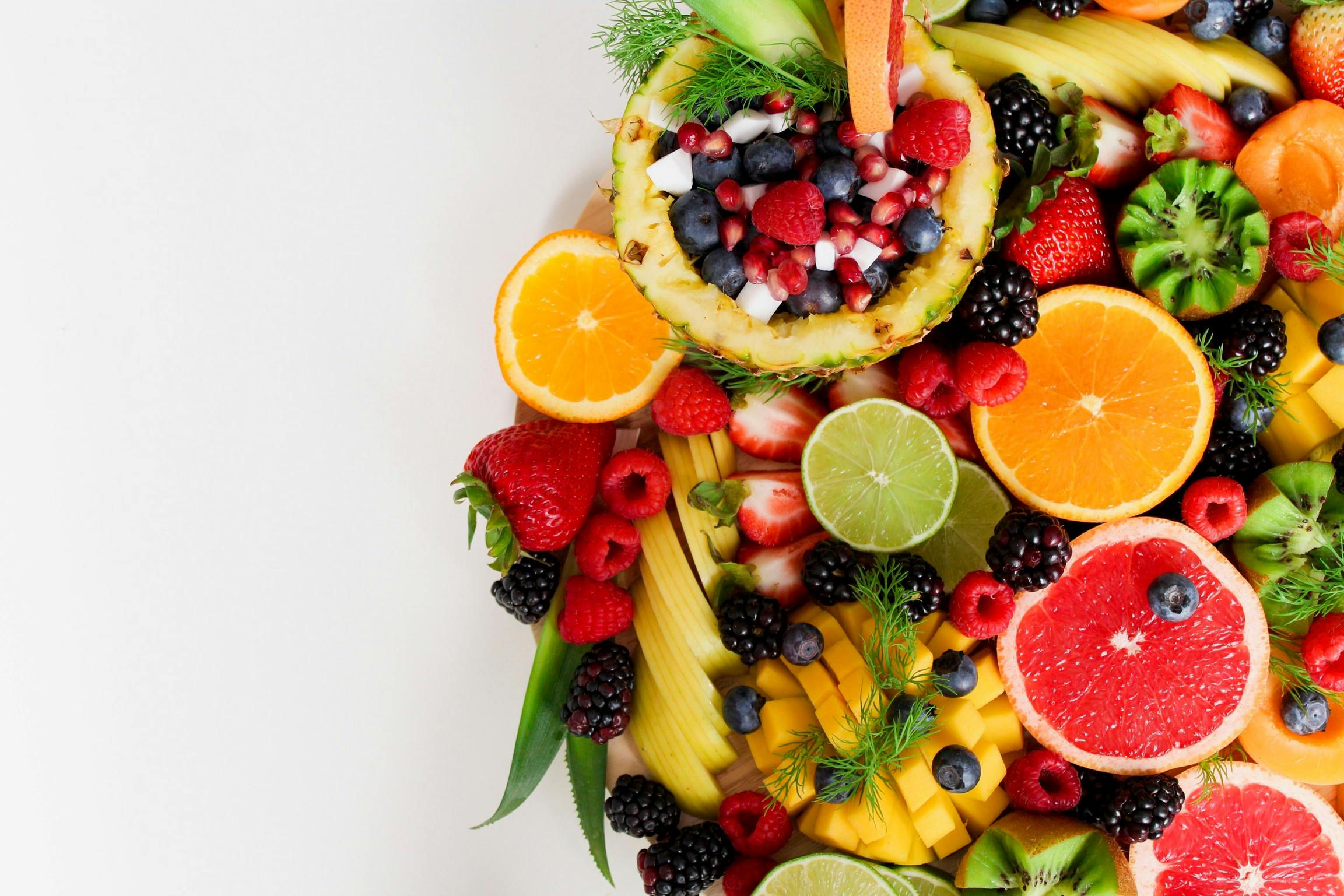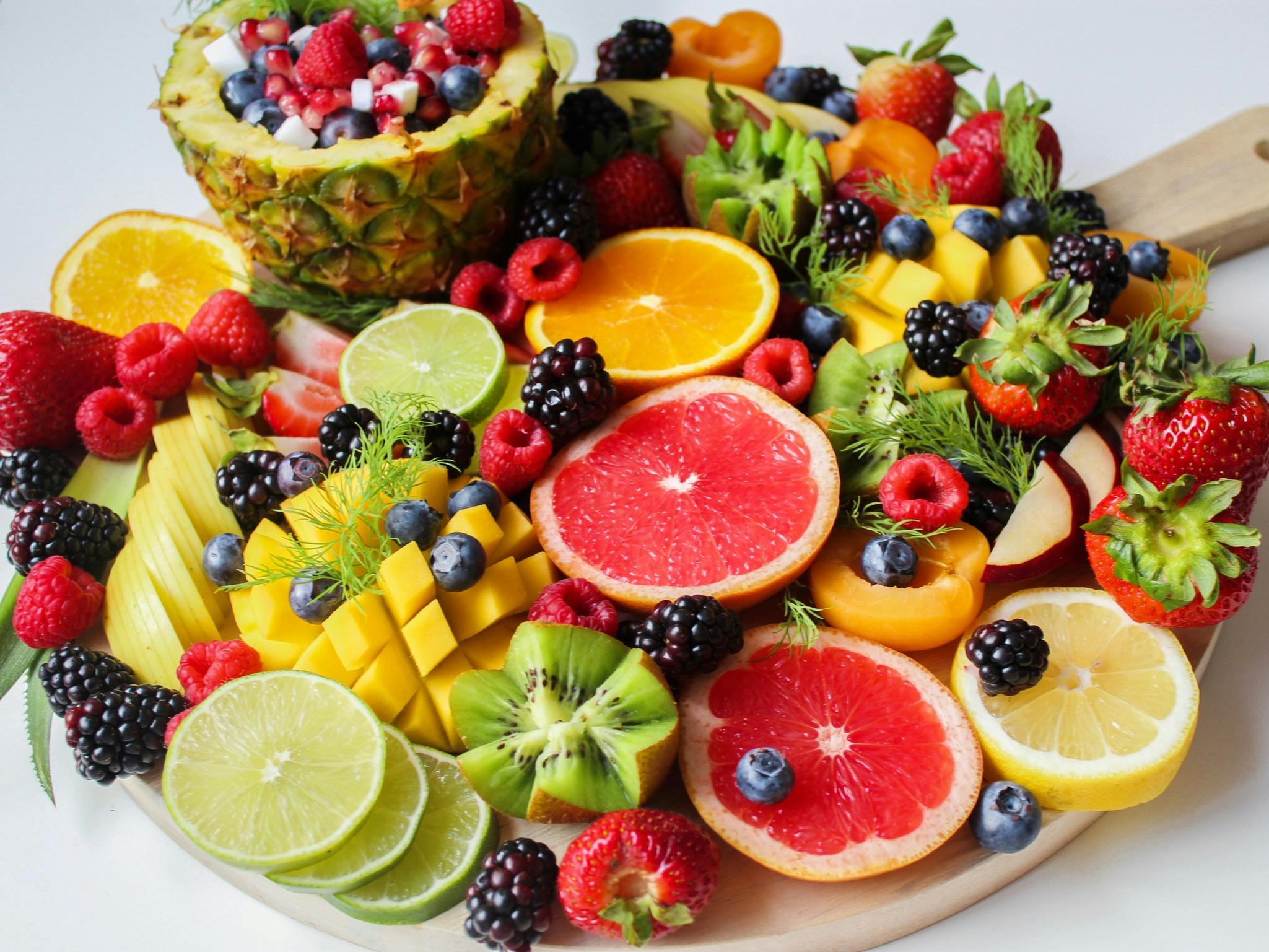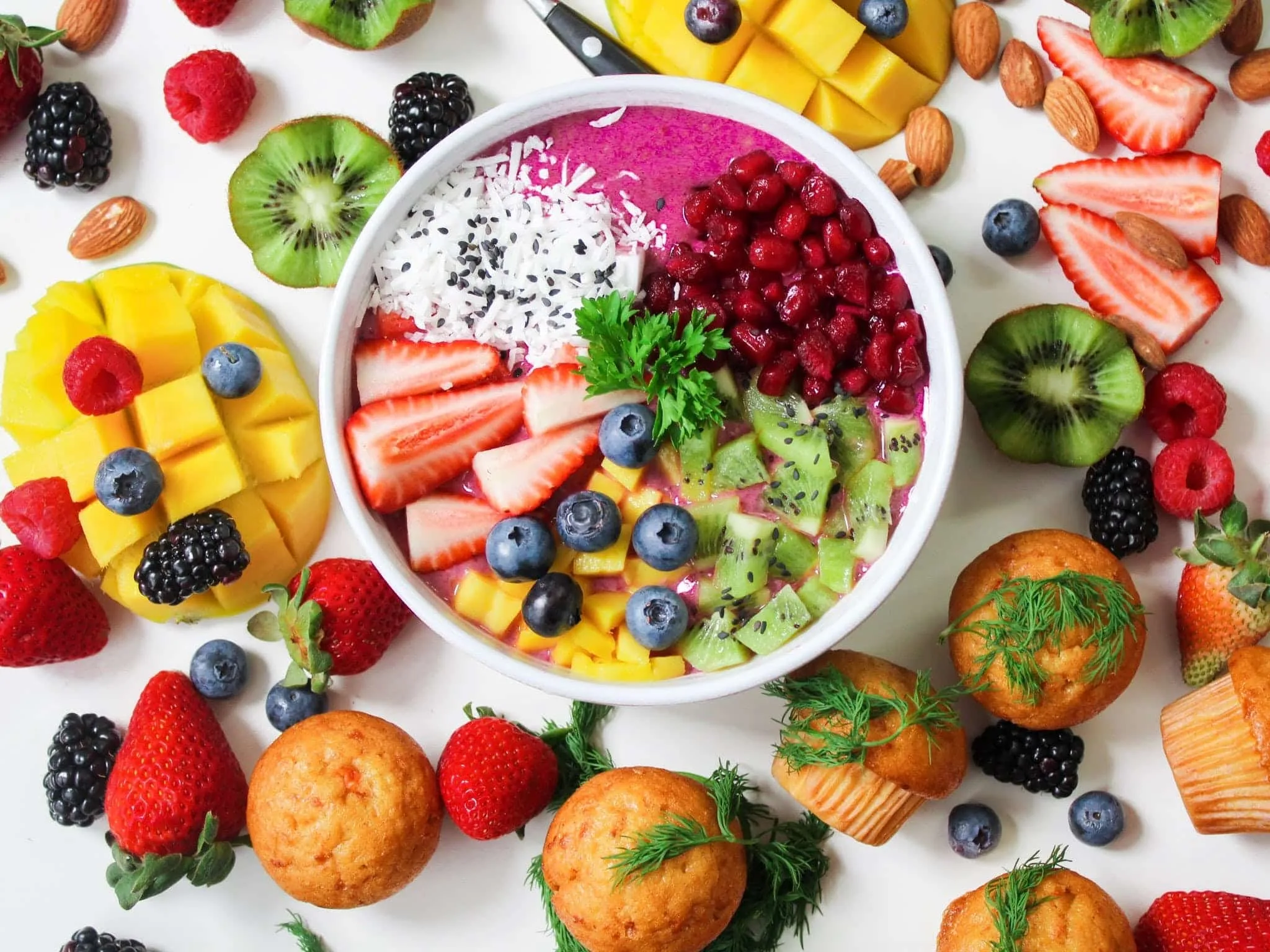Pineapple is a delicious and nutritious fruit that can be enjoyed in many different ways. From salads to desserts, this tropical treat can satisfy just about any craving. But why are so many people suddenly craving pineapple? In this article, we’ll take a look at the possible reasons behind the sudden surge in popularity of this sweet and tangy fruit. We’ll also explore some of the health benefits associated with eating pineapple, as well as some delicious recipes that you can make at home. So if you’re wondering why you have a sudden hankering for pineapple, read on to find out!Craving for pineapple can be caused by a variety of things including nutritional deficiencies, hormonal imbalances, and even psychological factors. Nutritional deficiencies can cause cravings when the body is not getting the right balance of nutrients it needs. Hormonal imbalances, such as low serotonin levels, can also lead to cravings for pineapples because serotonin helps regulate appetite and moods. Lastly, psychological factors such as stress or boredom can trigger cravings for certain foods including pineapples.
Nutritional Benefits of Eating Pineapple
Pineapple is one of the most popular tropical fruits and it’s easy to see why. Not only is it deliciously sweet and juicy, but it also has numerous health benefits. Pineapple is rich in essential vitamins and minerals, as well as dietary fiber. It’s also a great source of antioxidants that can help protect your body from free radicals. Here are some of the top nutritional benefits of eating pineapple.
Pineapple is an excellent source of vitamin C, providing 131 percent of the recommended daily value in a single cup. Vitamin C is an important antioxidant that helps protect cells from damage caused by free radicals. It also plays a role in collagen production, which helps keep skin healthy and youthful-looking. Additionally, vitamin C helps support the immune system by fighting off bacteria and viruses.
Pineapple also contains other essential vitamins like thiamin, riboflavin, niacin, folate, and pantothenic acid. These vitamins are important for energy metabolism, hormone production, growth and development, and healthy skin and eyesight. Pineapple is also a good source of manganese which helps build strong bones and connective tissue.
In addition to vitamins, pineapple is packed with minerals such as potassium, phosphorus, calcium, magnesium, iron, sodium, zinc and copper. These minerals are important for maintaining a healthy pH balance in the body as well as regulating fluid levels in cells.
Pineapple is a good source of dietary fiber which can help keep you regular and promote digestive health. Fiber can also help lower cholesterol levels and reduce your risk of heart disease.
Finally, pineapple contains powerful antioxidants like flavonoids that can help protect your body from oxidative stress caused by free radicals. These antioxidants may also have anti-inflammatory effects that can reduce inflammation throughout the body.
Eating pineapple on a regular basis can provide numerous health benefits including improved digestion, better immunity against infections and diseases, improved vision health as well as healthy skin complexion . It’s an excellent addition to any diet!
Psychological Reasons for Cravings of Pineapple
Craving for pineapple is a common phenomenon and it can be attributed to a variety of psychological reasons. One of the primary reasons for craving pineapple is its association with feelings of joy and pleasure. Pineapple is a sweet, juicy fruit with a unique flavor that elicits positive emotions when consumed. Pineapple also has strong symbolic associations with tropical vacations, relaxation, and fun times spent with friends and family. As such, people may crave pineapple in order to associate themselves with these good feelings.
Another psychological reason for cravings of pineapple is its nutritional value. Pineapple contains important vitamins and minerals that are essential for proper functioning of the body, such as Vitamin C, manganese, potassium, and magnesium. Eating pineapple can make people feel energized and satisfied, which can lead to cravings in order to sustain this feeling.
Finally, cravings of pineapple may be related to stress levels or emotional states. When people are feeling anxious or overwhelmed they may seek out comfort foods like pineapple in order to relax and soothe their minds. This type of craving is often associated with emotional eating as it provides a quick fix for stress relief but does not address the underlying cause of the stress itself.
Eating Pineapple to Satisfy a Craving
Pineapples are a great snack for satisfying cravings. They are naturally sweet and have a unique flavor that stands out from other fruits. Plus, they are very low in calories and fat, making them an ideal snack for those who are trying to lose weight or maintain a healthy lifestyle. Pineapples also contain vitamins and minerals that can help with digestion and promote overall health. Additionally, pineapples contain digestive enzymes that can help break down food more quickly, leading to less cravings. Lastly, the fiber in pineapples helps keep you feeling full longer, which reduces the likelihood of having cravings in the first place.
All in all, eating pineapple can be an effective way to satisfy cravings without consuming unhealthy junk food or empty calories. Not only does it provide necessary nutrients and vitamins, but it also helps with digestion and keeps you feeling full longer. This makes it an ideal snack for anyone looking to satisfy their cravings without compromising their health goals.
Strategies to Reduce Cravings for Pineapple
Craving for pineapple can be difficult to control, especially if you don’t have access to the fruit or don’t have time to prepare it. But there are some strategies you can use to help reduce cravings for pineapple.
One way to reduce cravings for pineapple is to replace it with other fruits that contain similar flavors and nutrients. Fruits like mangoes, papayas and kiwis are all high in vitamin C and fiber, and they have a similar sweet-tart flavor that can help satisfy your craving.
Drinking plenty of water is also important when trying to reduce cravings for pineapple. Staying hydrated helps keep hunger at bay and can help prevent overindulging in sugary snacks or drinks. Additionally, make sure you’re getting enough sleep each night as lack of sleep has been linked to increased food cravings.
If you find yourself still craving pineapple, try distracting yourself by engaging in an activity such as reading a book, doing a crossword puzzle or going on a walk. Taking your mind off the craving by focusing on something else will often help reduce the intensity of the craving.
Finally, try creating healthy alternatives that mimic the taste of pineapple without all of the added sugar and calories. Add some fresh diced pineapple into your morning yogurt or oatmeal for a sweet treat without all of the guilt. You can also add slices of fresh pineapple onto salads or sandwiches for an extra burst of flavor without overindulging in sugar-laden desserts or snacks.
By using these strategies, you can learn how to better manage your cravings for pineapple and find healthier ways to get your fix without overindulging in sugary treats!

Substitutes for Pineapple Cravings
If you are looking for a substitute for pineapples, there are many alternatives to consider. One of the most popular choices is mango, as it has a similar sweet-tart flavor and texture. Another great substitute is papaya, which has a similar texture and sweetness as pineapple. Other tropical fruits such as guava, kiwi, lychee, star fruit, and passion fruit also make excellent substitutes. For those who don’t like the taste of pineapple but still want to get some of its benefits, canned or frozen versions of these fruits can be used to make smoothies or other recipes that call for pineapple. Additionally, citrus fruits like oranges and lemons can provide some of the same vitamins and minerals found in pineapple.
For those looking for a more savory option, bell peppers can provide a milder flavor similar to that of pineapple. These vegetables have a slightly sweet taste that can be used to add flavor to salads and other dishes without overpowering them with sweetness. Other vegetables such as carrots, tomatoes, squash, and radishes can also work as substitutes for pineapples. Finally, some grains like quinoa or bulgur wheat may also provide a good substitute if you’re looking for something with more substance than the fruit options mentioned above.
Avoiding Unhealthy Eating Habits Caused By Cravings
Cravings can be a major obstacle in attempting to maintain a healthy diet. While it can be difficult to resist the call of delicious, unhealthy foods, there are steps you can take to avoid unhealthy eating habits caused by cravings.
The first step is to practice mindful eating. This means taking the time to savor each bite of food, focusing on its taste and texture rather than simply gulping it down. By being mindful while eating, you’ll be more aware of when you’re full and less likely to overeat.
Another way to prevent unhealthy eating habits is to plan ahead. Before going grocery shopping, make a list of healthy snacks that you can keep on hand for when cravings strike. When hunger hits, instead of reaching for something unhealthy, you’ll have easy access to a nutritious snack that will help satisfy your craving without sabotaging your diet.
It’s also important to stay hydrated throughout the day as dehydration can often lead people to mistake thirst for hunger and cause them to reach for an unhealthy snack instead of water. Drinking plenty of water will also help keep your body feeling full and energized so that you won’t be as tempted by unhealthy snacks throughout the day.
Finally, try distracting yourself from cravings by practicing activities like deep breathing or mindfulness meditation when the urge strikes. These activities can help you stay focused on your goals and divert your attention away from foods that will sabotage your diet.
By following these tips, you’ll be able to avoid unhealthy eating habits caused by cravings and stay on track with maintaining a healthy diet.
Foods that Should Be Avoided When Experiencing a Craving for Pineapple
When one is experiencing a craving for pineapple, there are some foods that should be avoided. Eating too much sugar or processed carbohydrates can lead to an increase in cravings for sweet foods like pineapple. Eating high fat and high salt snacks are also not recommended as they can increase one’s appetite and lead to an increase in cravings. Processed foods such as junk food, chips, and candy should also be avoided as these contain high amounts of sugar and unhealthy fats. Additionally, it is best to limit the consumption of alcohol and caffeine because they can cause dehydration which can make cravings worse.
It is also important to avoid eating fast food or meals that are high in saturated fats or refined carbohydrates. Eating meals that are too large can also lead to increased cravings because it causes blood sugar levels to spike and then drop quickly, leading to hunger pangs. Furthermore, eating too many sugary or processed snacks can cause a spike in insulin levels which can trigger hunger pangs and make cravings worse. Lastly, it is best to avoid drinking fruit juices as these contain added sugars which may contribute to an increase in cravings for sweet foods like pineapple.

Conclusion
Craving pineapple can be explained by several factors. Pineapple is a sweet and juicy fruit that contains many essential nutrients, vitamins, and minerals that can help promote overall health. Pineapple may also contain compounds that are known to reduce inflammation and improve digestion. Additionally, pineapple has a unique flavor and aroma that can be attractive to many people. Therefore, it is no surprise why so many people crave pineapple when they are in need of a sweet treat.
Although there is no definitive answer as to why someone may be craving pineapple specifically, it is likely due to the fact that it contains so many essential nutrients and vitamins that benefit the body. Therefore, if you find yourself craving pineapple, it may not be all in your head – it may be your body telling you something!



